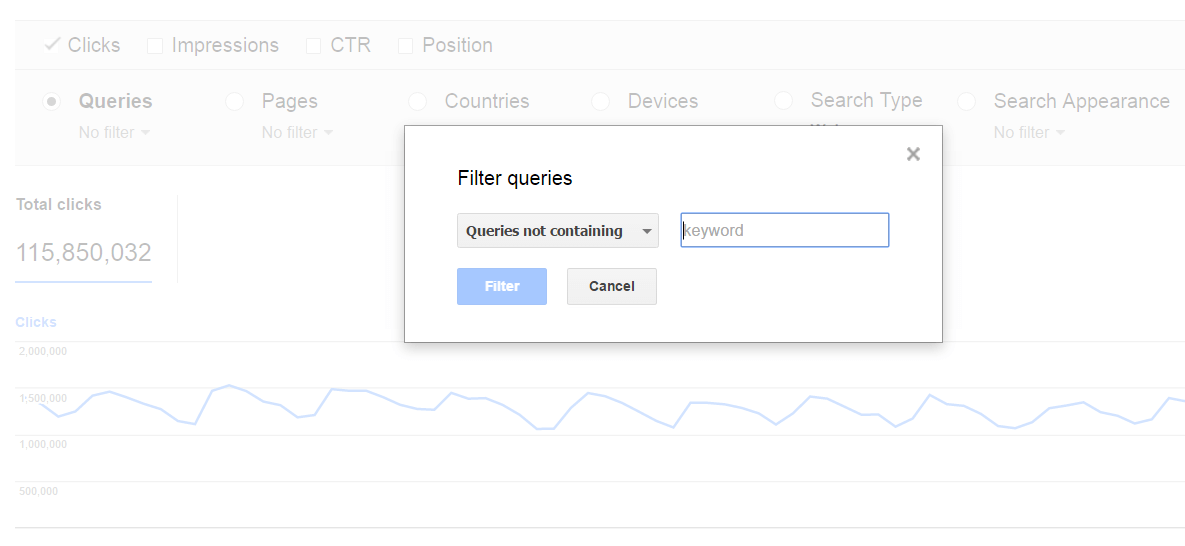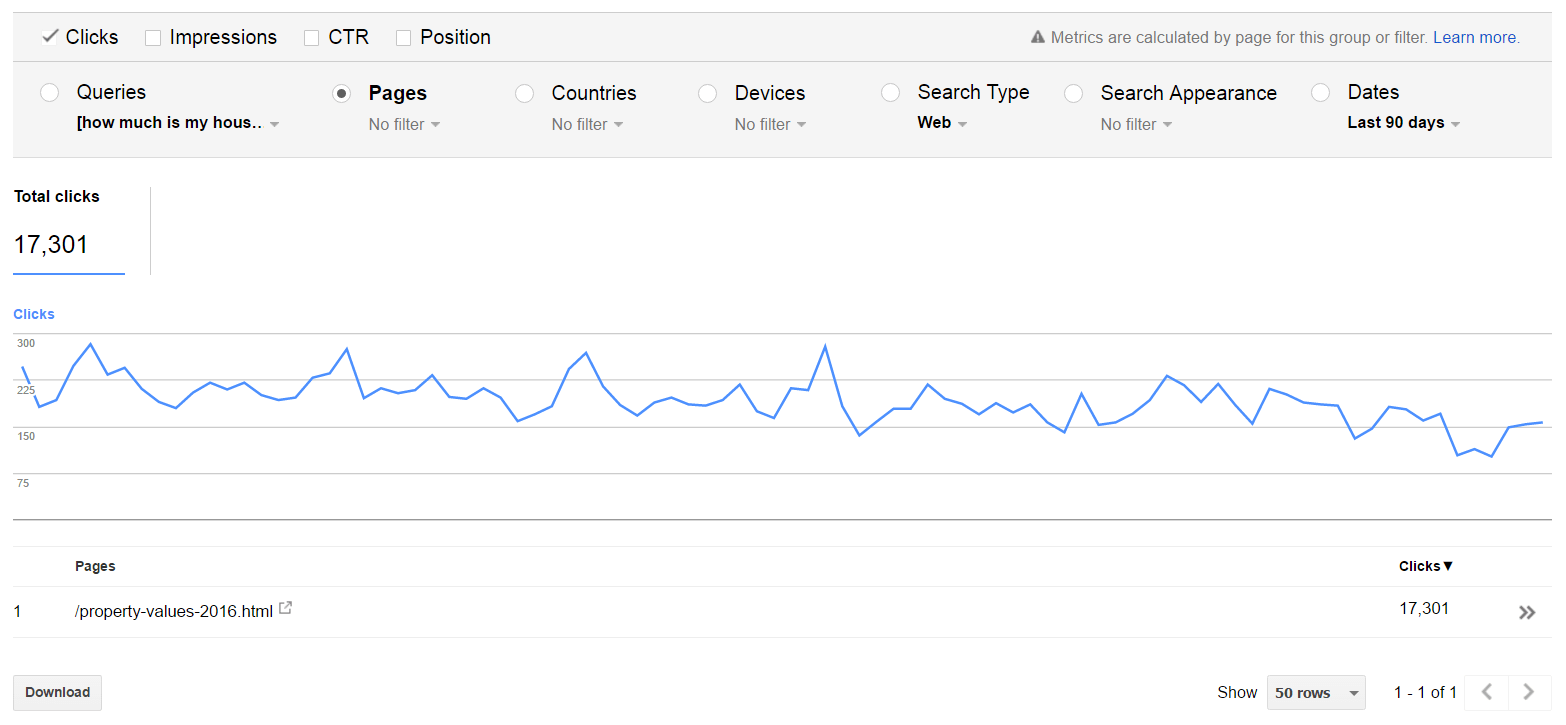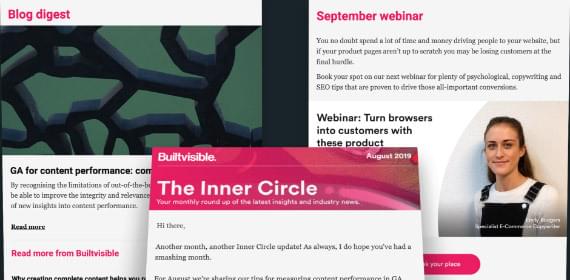What you need
Due to the proliferation of handy tools available – many of which are free – you don’t need a crystal ball or even a PhD to anticipate the next question your potential customers will type into the search box.
For this exercise, all you need is the following:
- An archive of content that is already driving traffic through organic search.
- The ability to edit and republish said content.
- Access to Google Search Console.
- Some basic writing skills.
What pages need the most love?
Use Google Search Console’s ‘Search Analytics’ feature to find out which queries are leading users to your content. To find the keywords with the most potential, you’ll need to filter out any branded terms.

Let’s say you’re in the property business. Most of your traffic – barring any branded terms – is likely driven by high-volume, commercial queries such as “houses for sale” or “flats to rent.”
Rather than focusing on the queries that are already working overtime, scroll down and look for any long tail or even more conversational queries – like “how much is my house worth” or “how to sell my house” – that send modest amounts traffic to your site.
Use Search Console to see which pages are benefiting from these queries and ask yourself the following questions:
- Is the page properly optimised for this query?
- Does the page fulfil the searcher’s intent?
If you have a page ranking for the query “how much is my house worth,” but the page title is ‘House values 2016,’ then this could be an opportunity to optimise the page based on user intent.

Don’t have time to review your pages one-by-one? Moz’s Cyrus Shepard has a handy tip for finding the pages that need the most love: use Search Console to spot URLs that have a high number of impressions but a low click-through rate. This mismatch is an indication that even though the page may be ranking well, it’s failing to fulfil the searcher’s intent.
How to re-optimise your content
Once you’ve gathered a list of pages that require action, it’s time to channel your inner Hemingway. Try searching for the query yourself and get a sense of the competing URLs; this will help you to craft a brand new, highly relevant page title and meta description combo that really stand out.
Don’t stop there: a well-crafted page title and meta description will help to boost a page’s click-through rate, but if there’s a disconnect between what the page appears to offer in the SERPs and the actual content on the page, you’ll only end up with a high bounce-rate.
Sticking with the previous example, if you know that people are on your page because they want to find out the value of their house, you need to give them this information. Refresh the copy on the page as a priority and rewrite the headers. Beyond that, think visually: an interactive tool could provide a neat solution to this enquiry, but if that’s not possible, a simple graphic representation – you can use websites like Data Wrapper or Statista to create cool charts – may suffice.
Questions and answers
Another reason to optimise pages that are ranking for conversational queries is the incentive of scoring an answer box, which can help you to usurp far more authoritative domains simply by structuring your content better.

Use Search Console to see which conversational queries your content is already ranking for, by searching for words such as “how,” “what” and “why.”
Make sure the query is included word-for-word on the page and wrap it in an H1 tag. Then, provide a coherent and concise answer directly beneath the query in an ordered list (perfect for a step-by-step guide) or a single sentence.
A simple solution to user intent
The idea of matching user intent is something you’ll read about on most SEO blogs. While this something that certainly falls within the realm of technical SEO, it doesn’t require much technical skill to execute.
Whether you’re optimising older pages in line with the data available or you’re creating new content, you simply need to bear the same two questions in mind: If I was searching for a solution to this query, would I click on this page? If I landed on this page would I want to stick around?

Derran
Question on ‘scoring an answer box’
Would you recommend a FAQ page, with all questions wrapped in h1 tags if you have a tonne of FAQ questions that you want to try and get an answer box for?
It doesnt seem ideal to create lot of thin pages aimed at each individual question, but I might be wrong.
Thanks guys
Richard Baxter
Hi Derran, that probably wouldn’t work. Best way to learn is to adapt pages that already rank for your target queries with the answer box markup.
Sarah
I’ve never thought about using google search console to identify the keywords associated with content. That’s a very good idea to update your old content and reduce the chances of “invisble/weak” pages content on your site. Thanks